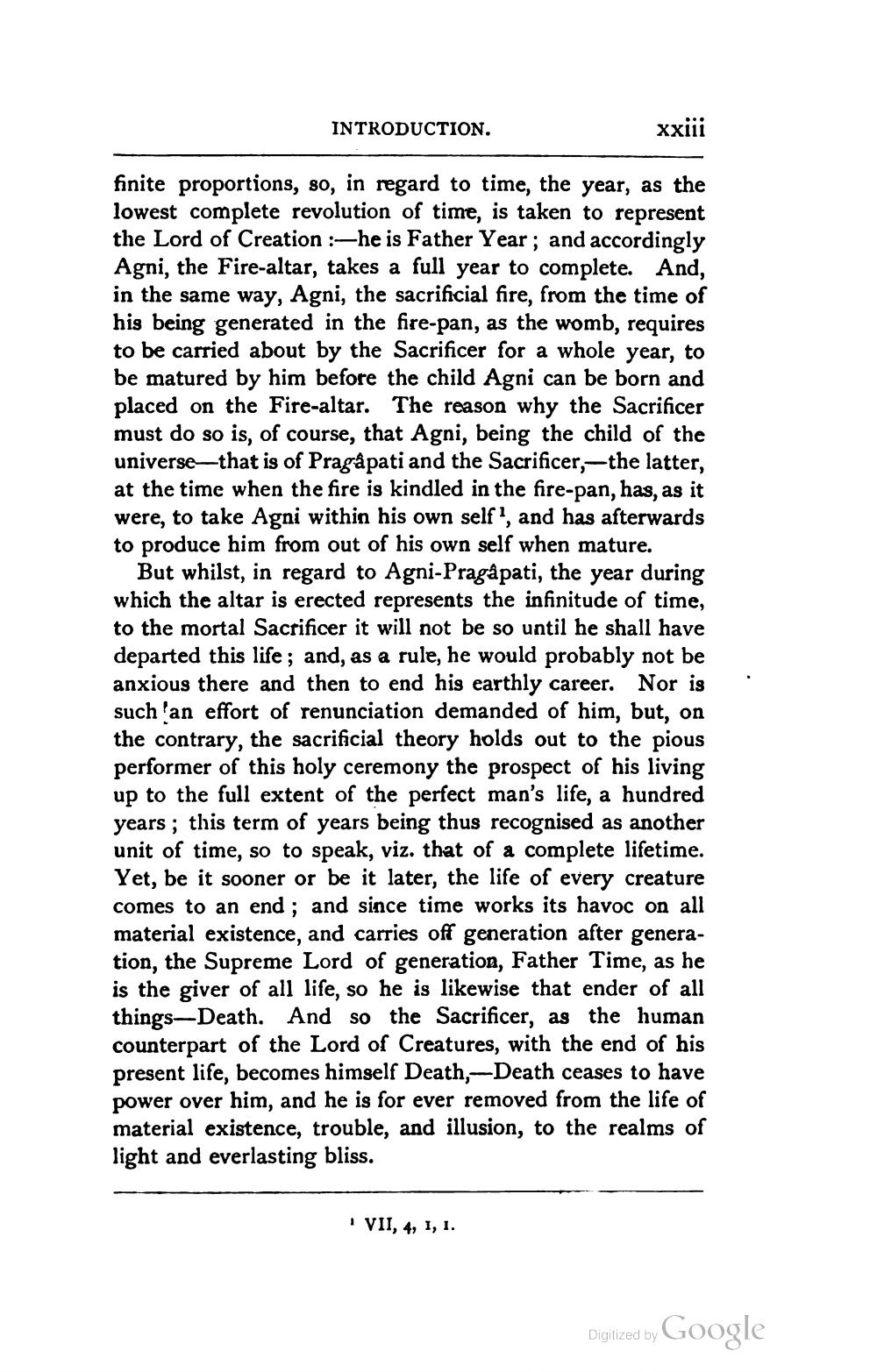________________
INTRODUCTION.
xxiii
finite proportions, so, in regard to time, the year, as the lowest complete revolution of time, is taken to represent the Lord of Creation :-he is Father Year; and accordingly Agni, the Fire-altar, takes a full year to complete. And, in the same way, Agni, the sacrificial fire, from the time of his being generated in the fire-pan, as the womb, requires to be carried about by the Sacrificer for a whole year, to be matured by him before the child Agni can be born and placed on the Fire-altar. The reason why the Sacrificer must do so is, of course, that Agni, being the child of the universe—that is of Pragåpati and the Sacrificer,-the latter, at the time when the fire is kindled in the fire-pan, has, as it were, to take Agni within his own self!, and has afterwards to produce him from out of his own self when mature.
But whilst, in regard to Agni-Pragapati, the year during which the altar is erected represents the infinitude of time, to the mortal Sacrificer it will not be so until he shall have departed this life ; and, as a rule, he would probably not be anxious there and then to end his earthly career. Nor is such 'an effort of renunciation demanded of him, but, on the contrary, the sacrificial theory holds out to the pious performer of this holy ceremony the prospect of his living up to the full extent of the perfect man's life, a hundred years; this term of years being thus recognised as another unit of time, so to speak, viz. that of a complete lifetime. Yet, be it sooner or be it later, the life of every creature comes to an end ; and since time works its havoc on all material existence, and carries off generation after generation, the Supreme Lord of generation, Father Time, as he is the giver of all life, so he is likewise that ender of all things-Death. And so the Sacrificer, as the human counterpart of the Lord of Creatures, with the end of his present life, becomes himself Death,-Death ceases to have power over him, and he is for ever removed from the life of material existence, trouble, and illusion, to the realms of light and everlasting bliss.
VII, 4, 1, 1.
Digitized by Google




